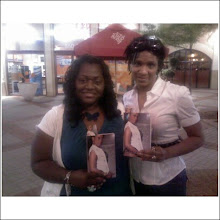
Are small Publishing houses getting a raw deal? Well according to several articles in the publishing arena the answer is NO. The critical eye on Small publishing houses seem to be validated. There are many people that decide to become publishers without doing their homework. They start half -baked companies that put the authors and themselves at risk for a big let down. First things first. Small companies ran by amateurs usually do not use professional contracts. The contract between publisher and author is crucial it protects both parties and is an outline of responsibilities and duties for all involved in the deal. You can find sample contracts at http://www.legaldocuments.com/ . I am author and president of two small Publishing companies Johnson Publications Press Inc. and Metamorphosis Publications(Christian Lit) based in Philly and Tampa FL. During my journey I learned a lot by trial and error; but when I decided to pursue publishing other author's work I did my research. There are plenty of seminars as well as books that teach the basics about publishing as a career.
Owning and operating a small Press has lots of benefits. Small publishers have the luxury of publishing in a niche market, having more creative freedom for each project, being more in tuned with each author and the ability to offer authors a higher royalty. This is due to the absence of the large over head for a massive staff with various projects running at one time.As many benefits that are present there are pitfalls if the publisher is not well read and prepared to be a business owner. Remember the key word is professional. The projects put out at a small press should be no different than those at the larger publishing company. They should be at least industry standard. Smaller publishers need key people to assist in the process too. So please if you are running a small publishing firm or an author considering one be sure to include the following people in your plans. They assist the publisher with the major parts of publishing a book.
The key players are:
Marketing Team
Review Team
Development Editor
Production EditorCopy Editor
Proofreader
Interior Designer
Cover Designer
Copywriter
Professional Book Printer (not Staples or Kinko’s)
Distributor
*These are some important people but they are Optional:
Book Doctor
Print Broker
Ghost writer
Helpful Resources:
Cover and Interior Designers - kari@graphicapps.comhttp://www.candann.com/
Developmental Editor- http://www.authorsteam.com/
Book Doctor -mailto:Doctors-basyesander@yahoo.com
Book Publicist- sansonepr@sbcglobal.net
*Stay tuned for Part II







